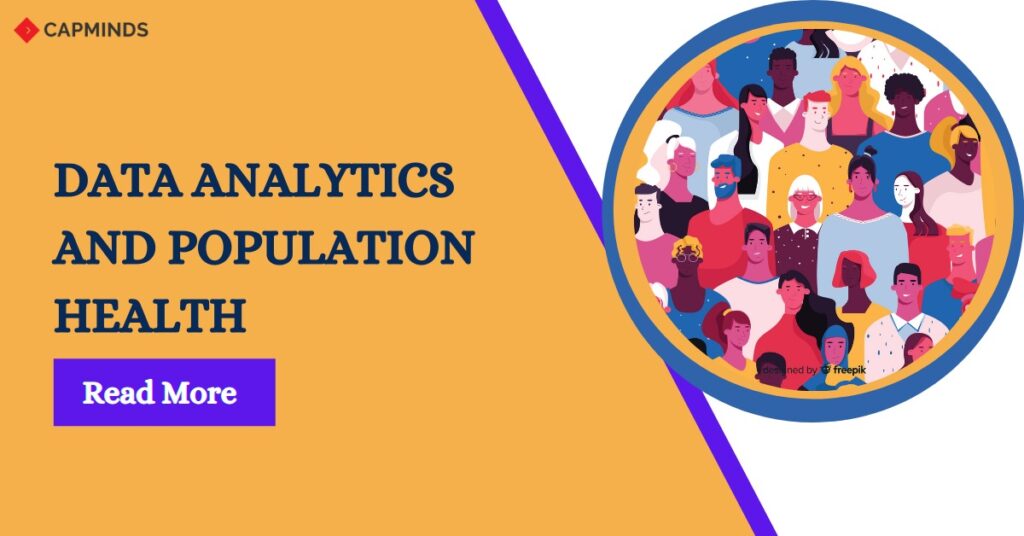Data Analytics And Population Health
According to the WHO, health in general means the state of physical, mental, and social well-being and not merely the absence of disease and infirmity. Health should be well cherished to attain good outcomes.
These days people became more conscious about keeping their health on the bright side to lead a good and positive life. Individuals especially due to the pandemic have started working on maintaining their health. We are talking about individual people here. So what is population health?
It is nothing but the health and outcomes of a group of people/individuals at a given period, rather than the health of a single individual. The common factors that influence population health are housing, education, and poverty.
Contributing towards the improvement of population health is important to the practitioners/physicians.
Their kind of improving population health involves the consideration of a defined landscape and expanding their view beyond the traditional clinical care.
Healthcare is important. The spending on healthcare is increasing more and more during these years. The money spent on healthcare each year by the United States is $3.8 trillion. Our health is determined by some social determinants such as our daily activities/choices.
The things like our place of living, the type of home, our education level, the society we live in, the kind of work we do, etc, can determine the level of health we have and maintain.
RELATED: A COMPLETE GUIDE TO POPULATION HEALTH MANAGEMENT
What Is Data Analytics?
Analytics in general means the systematic computational analysis of data or statistics or we can say it as, the information resulting from the systematic analysis of data or statistics. It is an integrative field.
According to a source, “data analysis is a process of inspecting, cleansing, transforming, and modeling data to discover useful information, informing conclusions, and supporting decision-making”.
Data analysis has multiple facets and approaches, encompassing diverse techniques under a variety of names, and is used in different business, science, and social science domains. In today’s business world, data analysis plays a role in making decisions more scientific and helping businesses operate more effectively.
Population health is so complex that both the providers and the practitioners know that there is no easy solution to it. Positive long-term outcomes for patients can be achieved by proceeding towards a data-driven objective to proactive and preventative population health.
The providers can achieve positive patient outcomes, enhance care management, and address social determinants of health through data analytics and population health management.
RELATED: DATA ANALYTICS IN HEALTHCARE: 5 MAJOR CHALLENGES AND SOLUTIONS
Enhancing Care Management
Population health management strategies and data analytics when implemented will benefit everyone in delivering value-based care. Even though it’s for a group of individuals, it covers the preferences of each individual without giving just a solution to fit all.
Each individual is concentrated individually. Value-based care is crucial because it helps in enhancing the health of the patient population, satisfaction, experience, and the cost of care by standardizing healthcare processes.
The providers can then evaluate which processes are the better and most effective methods to achieve wellness and prevention within the value-based care models. The physical and social determinants of health can be considered by organizations with population health management to prevent patients from becoming ill.
Improving Patient Outcomes Using Data
Big data can frequently be used to mark population health concerns. The providers and physicians to serve a group of individuals must make use of data.
Data analytics let medical professionals understand patient needs and delegate resources to those who are in need, thus resulting in better care management.
Addressing Social Determinants Through Data
Many studies are being undertaken to learn and find out the social determinants and the environmental factors influencing individual health. Some organizations monitor patients for their social determinants of health to refer them to community organizations.
“The one huge aspect of this that we’re looking at at Stanford Children’s is around the social determinants of health. Understanding what are the conditions, beyond just the typical things you collect in a physician visit. Is there domestic violence or food insecurities, or things like that, that really would ultimately affect the patient’s health down the road and may have different interventions than a typical physician visit?” revealed Stanford Children’s chief analytics officer Brendan Watkins.
An Overview
We at CapMinds believe in developing and presenting software that is exceptional in its way, that helps the providers to understand the needs and challenges of their patients faster and easier. That way you as a provider can produce better and improved patient outcomes.
Contact us for making your practice more efficient.
“Let’s make your practice better than ever, together”


